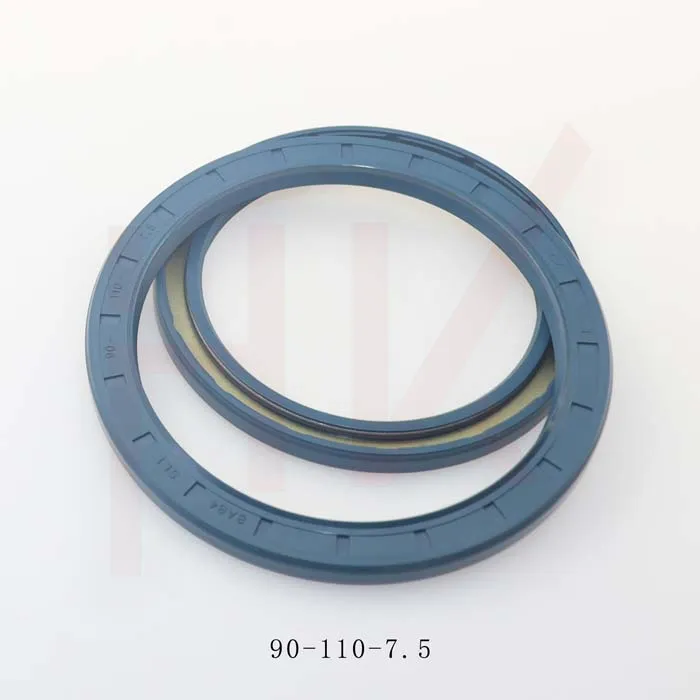Aug . 15, 2024 19:00 Back to list
Choosing the Right Oil Seal Manufacturer for Your Industrial Needs and Applications
Understanding Oil Seal Manufacturers The Key Players in Fluid Control Technology
Oil seals, commonly known as radial oil seals or rotary shaft seals, are essential components in many mechanical systems. They are designed to prevent the leakage of lubricants while simultaneously keeping contaminants out of the machinery. This is particularly crucial in automotive, industrial, and aerospace applications, where even minor leaks can lead to severe operational failures. The role of oil seal manufacturers in producing these crucial components cannot be overstated.
The Importance of Oil Seals
Oil seals are pivotal in ensuring the longevity and efficiency of machines. Their primary functions include containing lubrication to reduce friction between moving parts, thereby enhancing performance and efficiency. Additionally, they prevent the ingress of dirt, dust, and water—which can lead to premature wear and tear, reduced efficiency, and ultimately, machinery failure. The need for effective oil seals makes manufacturers indispensable in various industries.
Key Characteristics of Oil Seals
Manufacturers produce oil seals using various materials, including rubber, silicone, polyurethane, and thermoplastic elastomers. Each material is selected based on its specific properties, such as temperature resistance, chemical compatibility, and durability. For example, seals made from nitrile rubber are often used in applications requiring resistance to petroleum-based oils, while fluorocarbon rubber is ideal for environments that involve high temperatures and aggressive chemicals.
Beyond material selection, oil seal manufacturers must consider factors such as lip design, hardness, and dynamic performance characteristics. The lip of an oil seal plays a crucial role in creating an effective sealing effect against the shaft. Precision engineering and high-quality manufacturing processes are therefore essential to ensure that the seals provide optimal performance.
The Manufacturing Process
oil seal manufacturer

The production of oil seals involves several steps. It begins with the design phase, where engineers create specifications based on customer requirements and application needs. This is followed by material selection and sourcing. The manufacturing process typically includes extrusion, molding, and curing of the materials to create the final seal shape.
Once the seals are produced, they undergo rigorous testing to ensure they meet industry standards for quality and performance. Manufacturers often utilize advanced technologies such as computerized testing equipment to check for leaks, dimensional accuracy, and material integrity. This quality assurance process is critical, as any defects can lead to expensive machinery failures.
Market Trends and Innovations
The oil seal manufacturing industry is evolving with technological advancements. Automation and digitalization are becoming increasingly important, improving production efficiency and reducing costs. Additionally, manufacturers are investing in research and development to create seals that are not only more effective but also environmentally friendly. The demand for bio-based and recyclable materials is rising as industries seek sustainable solutions.
Moreover, the growing trend towards electric vehicles (EVs) presents new challenges and opportunities for oil seal manufacturers. The requirements for seals in EV applications—such as those found in electric motors and batteries—differ significantly from traditional internal combustion engine systems. Manufacturers must adapt to these changing needs and develop innovative sealing solutions tailored for emerging technologies.
Conclusion
Oil seal manufacturers are critical players in the machinery and automotive industries, providing essential components that ensure efficient and reliable operation. Their ability to produce high-quality seals that meet rigorous performance standards is crucial for the longevity and safety of machinery. As technology advances and industries evolve, these manufacturers will continue to innovate, addressing the ever-changing demands of their customers and contributing to the development of more efficient and sustainable systems. Understanding the role of these manufacturers is key to appreciating the complexity and necessity of oil seals in various applications.
-
TCN Oil Seal Metal Ring Reinforcement for Heavy Machinery
NewsJul.25,2025
-
Rotary Lip Seal Spring-Loaded Design for High-Speed Applications
NewsJul.25,2025
-
Hydraulic Cylinder Seals Polyurethane Material for High-Impact Jobs
NewsJul.25,2025
-
High Pressure Oil Seal Polyurethane Coating Wear Resistance
NewsJul.25,2025
-
Dust Proof Seal Double Lip Design for Construction Equipment
NewsJul.25,2025
-
Hub Seal Polyurethane Wear Resistance in Agricultural Vehicles
NewsJul.25,2025
-
The Trans-formative Journey of Wheel Hub Oil Seals
NewsJun.06,2025
Products categories
















